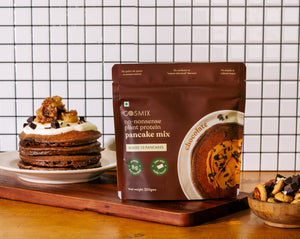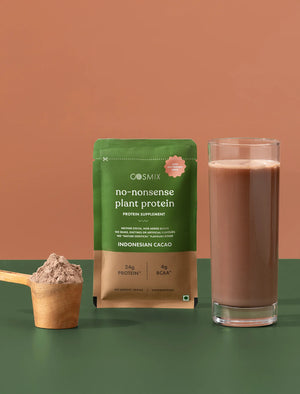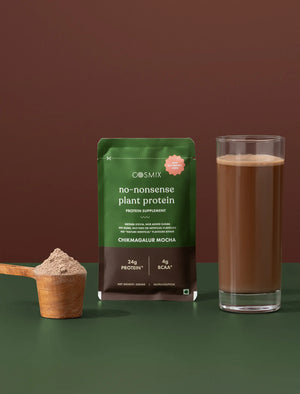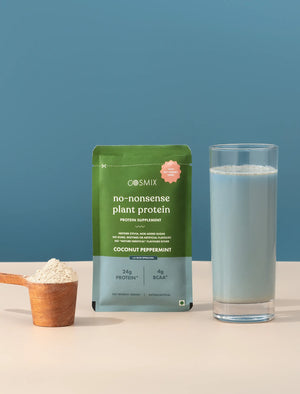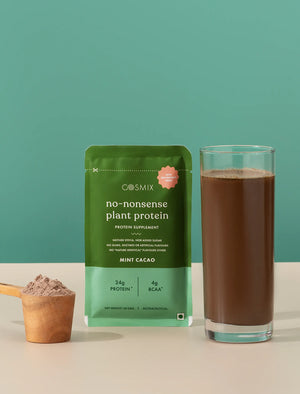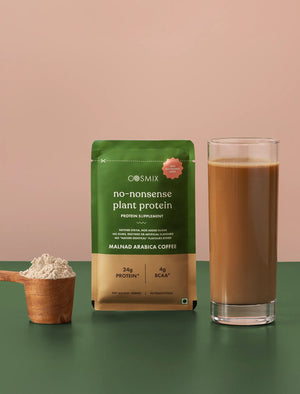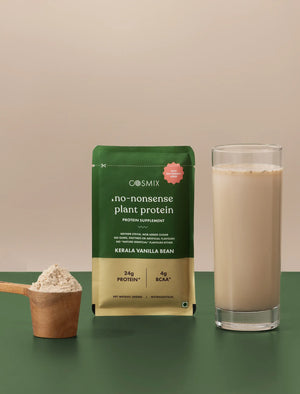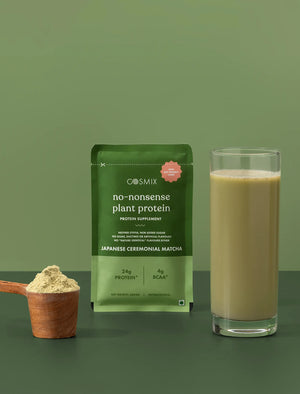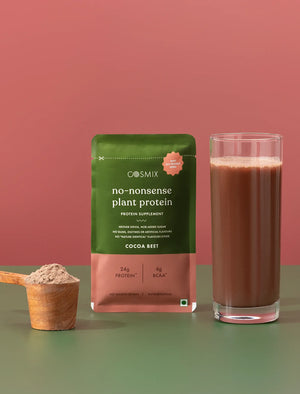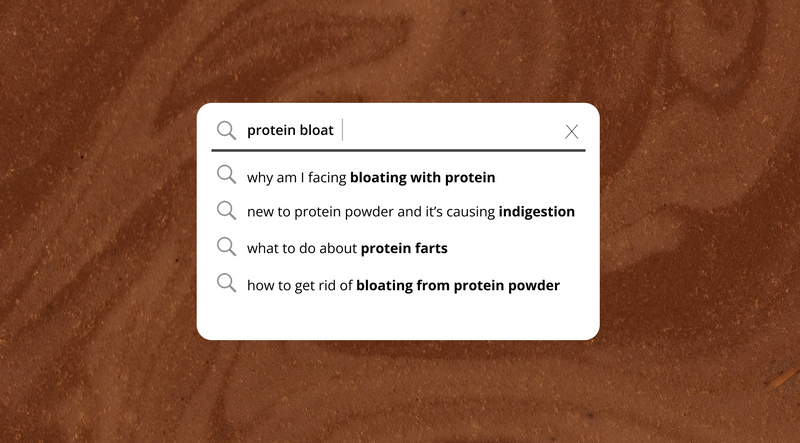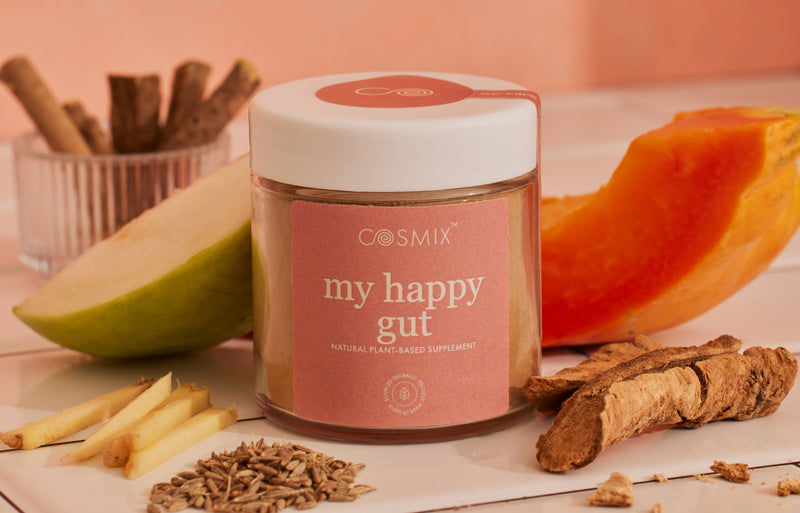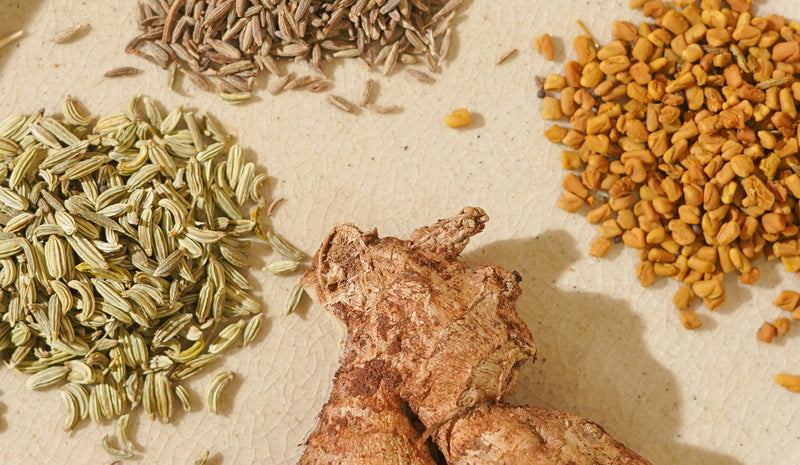Bacteria – you must have heard of them. Often considered the bane of the wellness world, science suggests that some bacteria are actually beneficial. If you've been hearing buzzwords like “gut health” and “gut microbiome” lately, you’re not alone. Conversations around the gut microbiome and its crucial role in achieving better health have gained momentum in recent years. And maybe rightly so. In this blog, we’ll delve deeper into how these tiny microorganisms are vital to our long-term health.
We Are More Bacteria Than Human
We wash our hands repeatedly, sanitize when we get home, and grimace when someone sneezes near us – doing everything possible to avoid any kind of encounter with the “germ” world. But it turns out we are all walking, talking petri dishes, filled with trillions of bacteria from our skin to to our gut. We contain more than 30 trillion bacteria in our bodies, and some scientists argue that we have ten times more bacterial cells than human cells. We frequently wash our hands, cringe when someone sneezes nearby, doing all we can to avoid contact with the "germ" world. However, it turns out we are all essentially walking, talking petri dishes, teeming with trillions of bacteria from our skin to the deepest parts of our gut.
But where do these trillions of bacteria come from? It all can be traced back to our mothers. During birth, we go through somewhat of a “bacterial baptism.” The way babies are delivered impacts their microbiome. Babies born vaginally acquire their first bacteria from their mothers when they exit through the birth canal. In contrast, babies born via C-section acquire bacteria through exposure to their surrounding environment. Research shows that these two colonization methods impact our long-term health. We also continue to acquire bacteria as we change diets, environments, and lifestyles.
Why Should We Care About Our Lifelong Companions?
The phrase “trust your gut” takes on a new meaning when we understand how deeply intertwined our health and our gut microbiome are. So what do these tiny friends do? Maybe the correct question is, what don’t they do? Our gut microbiome has many jobs, including extracting nutrients from food, digesting fibres and proteins, harnessing energy, and keeping our immune systems healthy – and that’s just the beginning.
In fact, according to the groundbreaking “Human Genome Project” conducted in 2003, our gut microbiome contains 300 times the number of genes compared to our human ones, and 40 of our genes are of bacterial origin. This means the trillions of bacteria residing in our gut are responsible for literally shaping us into who we are. Research shows that our gut microbiome can influence our moods, personality, and even dating preferences.
Bacterial Balance Matters
Now that we know we’re just bacteria with brains, it becomes obvious that the balance of good bacteria and bad bacteria is crucial. Think of the good bacteria as the soldiers of your gut and the bad bacteria as the monsters. When the population of bad bacteria becomes too large, they wreak havoc – making us crave more processed food, overindulge in sugary foods, and even lead to chronic issues such as digestive problems, obesity, and hormonal imbalances.
Having a healthy and diverse gut microbiome, on the other hand, can be a game changer. When the good bacteria in our gut are thriving, they work in harmony to keep our bodies functioning optimally. Here’s everything they take care of:
- Digestion and Nutrient Absorption: One of the primary functions of your gut microbiome is aiding in the digestion of food. Certain bacteria in your gut help break down complex carbohydrates, proteins, and fats, making it easier for your body to absorb nutrients. A healthy gut microbiome ensures you get the most out of the food you eat, providing your body with the vitamins and minerals it needs to thrive.
- Immune System Support: A significant portion of your immune system resides in your gut. The gut microbiome interacts with your immune cells, helping to regulate immune responses and protect against harmful pathogens. By maintaining a balanced gut microbiome, you can enhance your body's ability to fight off infections and reduce inflammation, which is linked to many chronic diseases.
- Mental Health and Mood Regulation: Did you know that your gut is often referred to as your "second brain"? The gut-brain axis is a communication network that links your gut and brain. Gut microbes produce neurotransmitters like serotonin and dopamine, which play a key role in regulating mood, anxiety, and stress.
How to Maintain This Balance
Just as you monitor your blood pressure or cholesterol levels, it's essential to keep an eye on your gut health. Here are some tips:
- Eat more foods that nourish your gut: Incorporate a wide range of fruits, vegetables, whole grains, and lean proteins into your diet. A diverse diet provides a variety of nutrients that support a balanced gut microbiome. Probiotics are super important to include in your diet. They are essentially live beneficial bacteria that can replenish and diversify your gut microbiome and are found in fermented foods like yoghurt, kefir, and sauerkraut.
- Mindful use of antibiotics: Antibiotics can significantly disrupt the gut microbiome. While they are essential when we get an infection, improper use can wipe out the good bacteria along with the bad.
- Avoid processed food: Processed and high-sugar foods can negatively impact the gut microbiome, leading to reduced diversity and potential health issues.
- Herbs can help: Herbs such as licorice can support our gut microbiome as well. It is known to provide protection and relief to inflamed tissue along the digestive tract. Fermented papaya is another superfood that is known for its potent digestive, antioxidant, and anti-inflammatory properties. We've added these herbs along with ashoka bark, ginger and triphala in our gut health mix 'My Happy Gut'. It contains gut-loving prebiotics & herbs, it nourishes the good bacteria promoting a balanced gut microbiome.
Your gut microbiome plays a vital role in your overall health, influencing everything from digestion and immunity to mental well-being and weight management. By understanding the importance of this complex ecosystem and taking proactive steps to support it, you can improve your gut health and, in turn, your overall health. Incorporate gut health supplements, schedule regular gut health checks, and adopt simple lifestyle changes to nurture your gut microbiome and enjoy the benefits of a healthier, happier you.











